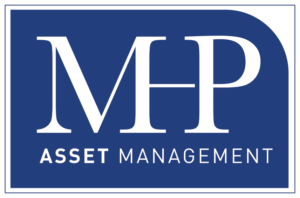When you hear the phrase “risky investments”, things like penny stocks, futures contracts, option contracts or junk bonds likely come to mind. But those investments or whatever you want to call them are typically used for speculation or as it used to be called “taking a flier” knowing your odds of success are not great. Futures and options are not risky per say, just leveraged so that they move faster in or away from profit. They can be used for risk mitigation in some circumstances.
The risk that I wanted to address though was the risk in owning things in your investment portfolio that you may believe are safe income producing vehicles like dividend paying stocks, preferred stocks, MLP’s or bond funds. When a stock or bond is purchased for income or the dividend it becomes that much more sensitive to interest rate fluctuations. As an example; because yields on CD, s, bonds and fixed income in general are so low, investment money has sought out any vehicle that pays a good dividend or yield. That in turn drives the price up and yield down, so when you have a lot of money chasing this yield you get inflated prices of the stock or bond.
Now I am not convinced that rates will go up significantly all that soon, in fact I believe that we have a lot of issues to get through before we worry about real inflation. Just realize that abrupt currency value change or a host of external global factors can change the interest rate picture very quickly creating a real jolt to those interest rate sensitive vehicles.
Know that I am not against bonds, just bond funds. Bond funds are typically perpetual in nature, in other words, the bonds are bought and sold by the fund manager with no maturity date as far as you are concerned. Inflows and outflows make holding a bond till maturity a challenge for funds. Typically if rates go up you lose value, if they go down you gain value. If you want exposure to bonds you might consider individual treasuries, corporate or municipal bonds with varied maturity dates, referred to as laddering. Laddering is just a method of staggering maturity dates from short term to long, with a strategy that the near term maturities may be reinvested into a potential rising rate market. This is referred to as “immunizing” the portfolio. If you buy individual bonds you will at least know what you paid, what your yield, maturity date will be and have more control over the investment. If you do not feel that you have enough assets to justify individual bonds I would just take a pass on the bond fund at this stage of the game and find something else for income. Low cost bond ETF’s can be a good non correlated asset to an equity portfolio; however, I do not believe it is the best means for current income. The exception to owning a bond fund would be a specialty fund, such as a municipal bond fund that is specific to that state making it triple tax free.
Of course all these strategies can be debated, I just want you to be active and aware of what is going on with your money, whether you manage it yourself, or have someone managing for you.

























